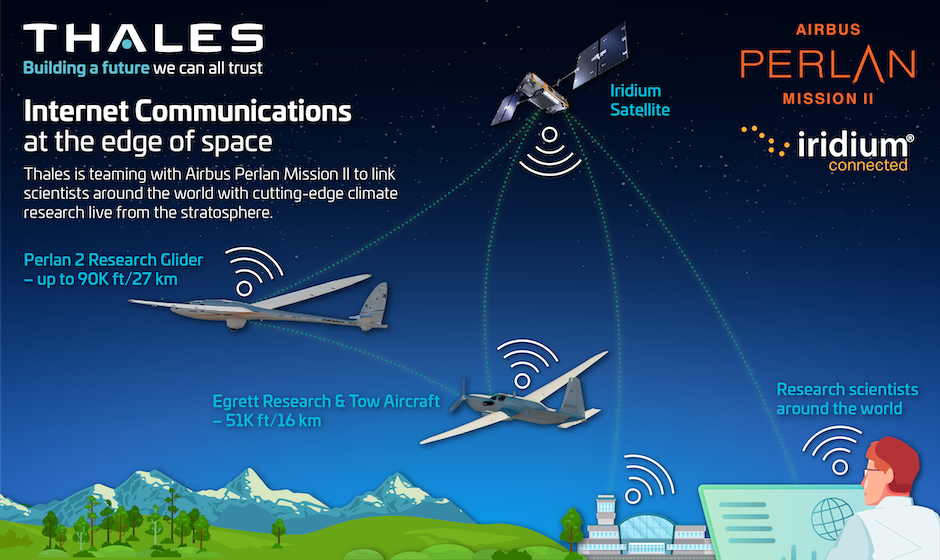
Through the partnership, Thales will aim to fly its latest mobile satellite communications system, FlytLink, in a zero-emission glider to more than twice the altitude of a commercial airline flight.
Based in Nevada, the Airbus Perlan Mission II team is planning for a possible return to flight this year in the US and El Calafate, Argentina. The group has already set aviation world altitude records in the Perlan 2 glider, which was designed, built and deployed to fly to 90,000ft.
Launched in 2015, the Perlan 2 achieved its highest record-setting flight of above 76,000 in 2018. The organisation’s mission is to conduct climate, atmospheric and aeronautical research at extreme high altitudes. Applications of its research include informing more accurate climate change models, innovating zero-emission aviation and demonstrating feasibility of using energy-efficient winged aircraft on Mars.
The world will get a ‘live, front row view’ of the stratosphere through the collaboration, Thales said, as the Perlan 2 glider is fitted with the FlytLink Thales Iridium Certus based satellite communications (satcom) system. The live feed will enable access to real-time data downloads.
Thales sets out plan for Net Zero
New altitude world record set by Airbus Perlan glider
FlytLink offers coverage and connectivity anywhere in the world for critical operations. Thales said the system’s resilience, high dependability and low size, weight and power make it adaptable to any aircraft.
“By exploring the stratosphere in an airborne research vehicle that creates zero pollution, we hope to unlock discoveries never possible before,” said Ed Warnock, CEO of The Perlan Project. “Through this exciting partnership with Thales, we also look forward to inspiring new generations of scientists, engineers and pilots in environmentally conscious aviation.”
Marc Duval Destin, VP strategy, product policy and innovation for Thales’ Flight Avionics activities said that the Airbus Perlan Mission II aligns with Thales’ strategies for future, greener aviation and the environment.
“Our equipment will be in an unpressurised environment,” Duval Destin added. “So, this is a great opportunity for us to validate the design and performance of our solution in such extremely non-benign conditions.”
When Perlan 2 reaches its target altitude of over 90,000ft it will be the highest a winged aircraft has ever flown in level flight. Its glider wings can fly in less than three per cent of normal air density at temperatures of minus 70°C, approximating the atmospheric conditions on Mars.





Glasgow trial explores AR cues for autonomous road safety
They've ploughed into a few vulnerable road users in the past. Making that less likely will make it spectacularly easy to stop the traffic for...